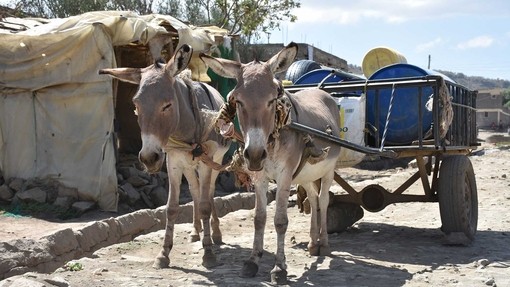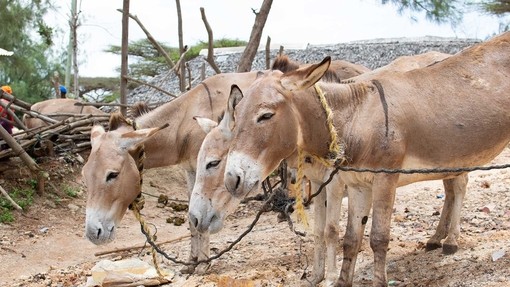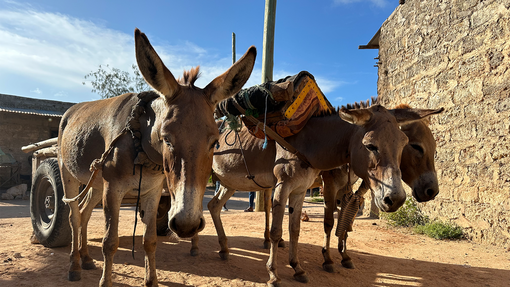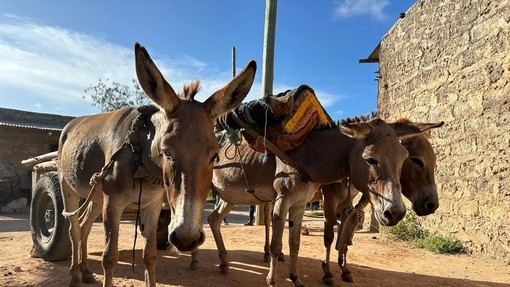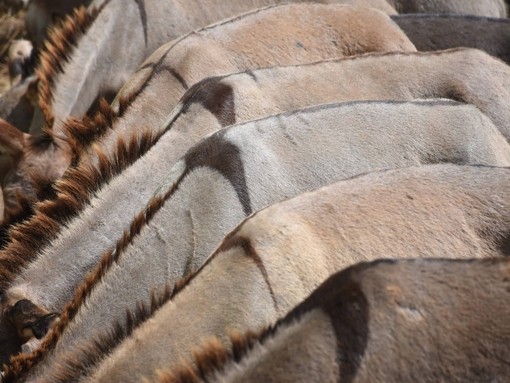
The Donkey Sanctuary’s latest report on the skin trade reveals that at least 5.9 million donkeys are now slaughtered every year to meet escalating demand for ejiao, a traditional Chinese medicine, made using their skins
The figure represents The Donkey Sanctuary’s most conservative estimate and is projected to reach 6.7 million by 2027.
The new figures appear in Donkeys in Global Trade, a report that clearly sets out recommendations for the industries and governments involved to take action that would help end the trade.
Due to a rapid decline in China’s own donkey population, agents for the skin trade are targeting vulnerable donkeys, and communities that depend on them, in countries across Africa and around the world.
In response to the threat facing their donkeys, African leaders are due to approve a pause on the slaughter of donkeys for their skin in countries across Africa. This would represent a landmark in ongoing efforts to stop this cruel and inhumane trade.
On the other side of the Atlantic in Brazil, where donkeys are also trafficked and killed for their skins, legislation to ban the slaughter of all equines is expected to pass the National Congress in 2024.
Legislation in Brazil and Africa will effectively cut off supply from two of the biggest ‘markets’ in this unethical trade – a move we hope will lead the ejiao industry to look for sustainable and cruelty-free alternatives.
Marianne Steele, CEO of The Donkey Sanctuary, said: “The slaughter of six million donkeys every year is an animal welfare disaster. Donkeys are a lifeline to people living in some of the most challenging environments on earth where the loss of a donkey can be the difference between modest survival and destitution.
“Donkeys have been invisible in political debate for too long. For this issue to have reached the highest levels of decision-making in Africa and Brazil, recognises the scale and brutality of the skin trade, and the vital role of donkeys around the world.”
The Donkey’s Sanctuary’s campaign to Stop the Slaughter is the single biggest donkey protection initiative the charity has undertaken in over 50 years of operation. Those who want to support the campaign can sign up to receive regular updates, and any donation made will support work to improve the welfare of donkeys everywhere, including this campaign.
Donkeys in Global Trade
Share this page
Tags
- News

